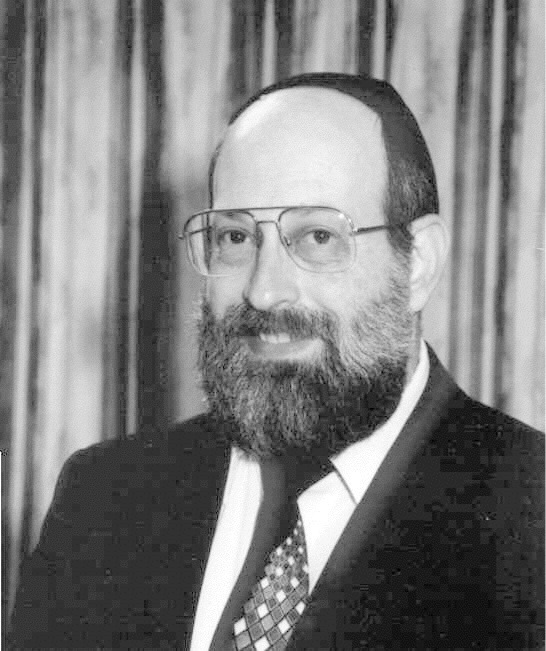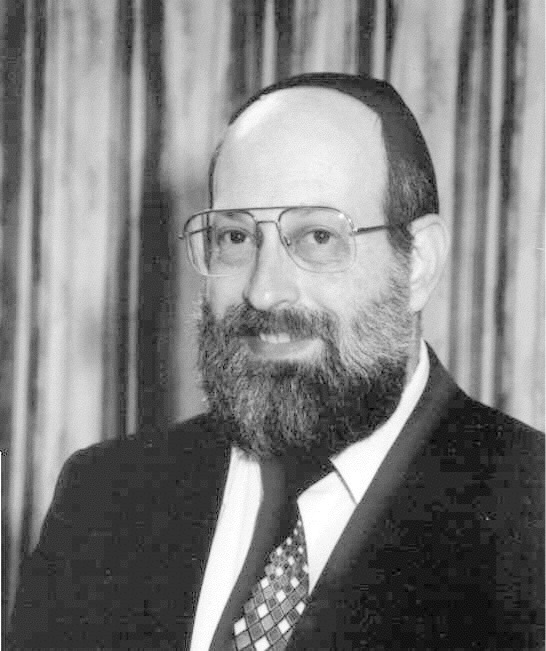Shafran: Piece plan
The right angle
Issue of March 27, 2009 / 4 Nissan 5769
The title of Reform Rabbi David Forman’s column in the Jerusalem Post was certainly intriguing. “Let’s Declare Ourselves a Separate Religion,” it read.
Israel, of course, grants a large measure of independence to a variety of religious groups represented among its citizenry. Eastern Orthodox Christian religious leaders are empowered to oversee religious rites and determine personal status issues in their community and they receive funds from the government; the same privileges are afforded the Roman Catholic community, the Muslim, the Bahai and others. Rabbi Forman seemed to be dangling a novel way for non-Orthodox Jewish groups to qualify for their own rights and benefits, to claim their own, so to speak, piece of the action.
Most of the article was a venting of Reform and Conservative ire over the fact that traditional Jewish religious law, or halacha, applied through the auspices of official Israeli rabbinate, governs Jewish status issues like conversion and marriage in the Jewish State. That policy, which has been in place since Israel’s birth more than 60 years ago, the writer contended, constitutes a “thrust[ing of] religious medievalism down the throats of a secular citizenry.” And as a result, he charged, Israel “is slipping into a theocracy.”
The columnist went on to claim that the “Orthodox establishment” is “undermining the cause of peace” –– presumably for taking groups like Hamas at their words –– and represents “the cohabitation of a chauvinistic theology with a religious ego.” The Orthodox, moreover, he wrote, are ensuring “that Israel fits neatly into the Middle East panoply of extremist states.”
Then there was more, later in the piece, about the “profane ruminations” and “blasphemous perorations” of some Orthodox rabbis. But you get the idea.
The article, however, contained less heated, more sensible words too.
Following the fulminations, the writer offered his honest admission that “the Reform and Conservative movements” are in fact “a separate religion.” And so, he continued, the most honest and straightforward way for those movements to attain clerical privileges of their own is for them to admit as much –– to declare themselves, as per the piece’s title, “a separate religion from Orthodoxy.”
A subtle dissembling, though, hides in that last word. For “Orthodoxy” is simply the name that the Reform and Conservative movements gave to what “Judaism” meant for millennia prior –– to what those movements sought to supplant when they birthed themselves.
Over scores of generations until relatively recently, the Jewish religion was synonymous with the belief that the Torah –– whose Written and Oral components are reflected and amplified in the corpus of halacha –– is divinely decreed, unchangeable and incumbent on all Jews. Movements that chose to put aside that belief, in whole or in part (as by considering contemporary mores to trump the Torah’s), separated themselves not from some mere “branch” of Judaism. They severed themselves conclusively from the trunk of the tree; they departed from what constituted the Jewish faith since Sinai. To be sure, their Jewish-born followers remain Jews in every way; a Jew is a Jew, whatever his or her congregational affiliation. But the belief systems that those movements –– qua movements –– embrace are at irreconcilable odds with the Judaism of the ages –– which is based on affirmation of the Torah’s timelessness and halacha’s sacrosanctity.
So when Rabbi Forman, after offering his admirable admission, goes on to imagine that a Reform and Conservative self-declaration as a new religion will reduce Orthodoxy to “merely one of three branches of Judaism,” he is attempting to have his new faith and delete it too. If he wishes the “non-Orthodoxies” to be considered a different religion, the theological justification is manifestly there; but let the move be honest, clear and decisive.
If it will be, then the new religion will have legitimate claim to the very same rights, privileges and determinations as are enjoyed by other independent and discrete faiths in Israel today.
Rabbi Forman is confident that, in the wake of the announcement of a new religion for Jews, “Reform and Conservative conversion classes would soar,” the halacha-respecting rabbinate’s “religious and social influence” would wane, “Orthodoxy’s stranglehold on the political system” would be “mercifully loosened” and “vibrancy, inclusiveness and progressiveness” would result.
Perhaps; and maybe birds will sing, too, and peace reign throughout the land. But Israeli polls have shown that, despite determined efforts by the non-Orthodox movements over decades to promote themselves, a clear majority of Israelis –– even if they are not personally halacha-observant –– still consider traditional Jewish beliefs and law to define Judaism. It is hard to imagine that declaring non-Orthodox movements a new religion will create a flood of applicants clamoring to join.
But whether it will or it won’t –– or, for that matter, whether or not Rabbi Formanís suggestion is taken up in earnest –– by acknowledging the essential disparity between the Judaism of time immemorial and contemporary divergences from it, the rabbi has performed a Jewish public service.
Rabbi Shafran is director of public affairs for Agudath Israel of America.

 47.0°,
Mostly Cloudy
47.0°,
Mostly Cloudy 







